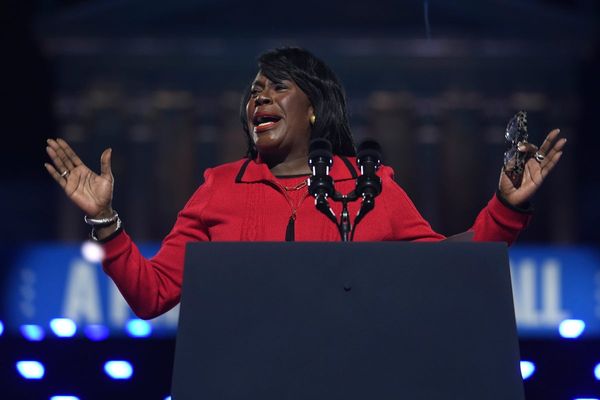
Pope Francis has been copping some flak for declaring that homosexuality should not be a crime, while maintaining it’s still a sin. This, some have said, is a nonsensical rhetorical knot. Is that fair?
Quoting the pontiff accurately, he said: “Being homosexual is not a crime. It’s not a crime. Yes, but it’s a sin. Fine, but first, let’s distinguish between a sin and a crime.”
Clearly thinking out loud, he added: “It’s also a sin to lack charity with one another.”
You have to admire this pope’s basic and unusual human-ness, his willingness to express papal fallibility — or at least something less than absolute moral certainty. When he talks, he sounds like a person.
Contrast with his predecessor Benedict XVI, who said “sexuality has an intrinsic meaning and direction which is not homosexual”. No shades of doubt there.
Benedict and his fellow arch-conservative cardinal George Pell were very busy before they both recently died, fighting a rearguard action against Francis’ liberalising inclinations. A book by Benedict has been released posthumously, in which he rails against “homosexual clubs” being allowed to exist in seminaries (the horror!), and Pell has been revealed as the author of an incendiary 2022 memo that labelled Francis’ “politically correct” leadership a “disaster” and “catastrophe” for the Catholic Church.
That is all designed to keep the pressure on Francis as he tries to drag the church out of the 16th century without sacrificing too many of its defining brand characteristics. After all, ask anyone in the street what Catholicism stands for and they’ll tell you the top few things it stands against: homosexuality, abortion, contraception and women priests.
On homosexuality, Francis is stuck with paragraph 2357 of the Catechism of the Catholic Church:
Homosexuality[‘s] psychological genesis remains largely unexplained. Basing itself on sacred scripture, which presents homosexual acts as act of grave depravity, tradition has always declared that ‘homosexual acts are intrinsically disordered’. They are contrary to the natural law. They do not proceed from a genuine affective and sexual complementarity. Under no circumstances can they be approved.
No shades of grey there. Indeed, non-acceptance of homosexuality per se is a point on which the church has never wavered. In 2003, the Congregation of the Doctrine of the Faith, controlled by Benedict when he was cardinal Ratzinger, declared that “respect for homosexual persons cannot lead in any way to approval of homosexual behaviour”.
In 2021, the congregation addressed this question: “Does the church have the power to give the blessing to unions of persons of the same sex?” Answer: “Negative.” Why? Because God “cannot bless sin”. Pope Francis formally assented to the ruling.
None of that is inconsistent with Francis’ recent statements, nor with his longstanding demonstration of overtly reaching out to LGBTIQA+ people or what he said in 2013: “Who am I to judge?”
Francis’ rhetorical point is that lots of things which are considered sins by Catholic doctrine are not treated by anyone as criminal. His example was lack of charity, but he could just as well have chosen coveting thy neighbour’s ass. Icky, but not a crime in any jurisdiction.
All that establishes is what should be obvious: that what is a crime in a secular society should not be dictated by religious belief. We’ve spent most of our time since at least the Enlightenment working our way out of that bind, and we can readily see where the opposite flow would take us, as being displayed in places like Afghanistan and Iran.
It’s worth remembering that “buggery” (anal sex) was a serious crime until the mid-1970s in all Australian jurisdictions. While technically gender-neutral, its target was not. In the NSW Crimes Act, for example, it appeared in a part headed “Unnatural Offences” and was described as “the abominable crime of buggery”. In Victoria’s equivalent, the word was “infamous”.
It’s a historical fact that homosexual sex (and indeed anal sex generally) was criminalised by virtue of religious doctrine. Of course, most criminal laws can be traced back to religion one way or another, because religion has tended to hold a near-monopoly on fundamental social norms in most societies most of the time.
If we’re talking about murder or theft, it’s not an issue because non-consensual violation of person or property is mostly wrong in every language and faith (yes, there are plenty of exceptions). The problem comes when the criminal law, pursuing a faith-based agenda, intrudes into the private realm of consenting adults.
Francis is simply acknowledging that the church has no business imposing its beliefs on anyone else; there is no conflict, therefore, in it maintaining that homosexuality is a sin while disclaiming any entitlement to make the sin a crime (and, correctly, declaring that it should not be).
For LGBTIQA+ Catholics, that is a major problem and I feel for them, but it’s irreconcilable. For Ratzinger and Pell, it’s a loss of the church’s asserted power, which was always illegitimate, to stretch its beliefs into law.
Is Francis the right voice for the Catholic Church v that of Benedict and Pell? Let us know by writing to letters@crikey.com.au. Please include your full name to be considered for publication. We reserve the right to edit for length and clarity.







